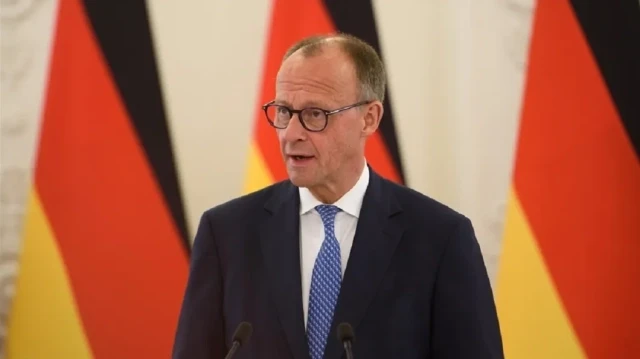
Conservative leader says latest developments in Gaza have not caused a change in Berlin's approach, adding that his government will not join countries planning to recognize Palestine at the UN General Assembly next month
Germany will not support the recognition of the Palestinian statehood, Chancellor Friedrich Merz said on Tuesday, despite growing calls for Berlin to change its position amid Israel's brutal war and ethnic cleansing policies in Gaza.
During a joint press conference in Berlin with Canadian Prime Minister Mark Carney, Merz stated that Germany would not join its allies Canada, Australia, and France in their plans to recognize Palestine at the UN General Assembly next month.
“The Canadian government and the Canadian Prime Minister are aware of the German federal government's position with regard to the possible recognition of Palestine as a state. We will not support this initiative,” the conservative leader said.
When asked if the German government's stance on recognition would change in light of recent Israeli military strikes in Gaza targeting civilians -- including Monday's hospital attack that killed at least five journalists, several health workers, and search and rescue personnel -- Merz responded negatively.
"We do not currently consider the conditions for state recognition to be met in any way, and as such, we remain divided on this issue. The events of the last few days and hours have not changed our stance," Merz said. "We will not follow this step if it appears on the United Nations General Assembly agenda in the late autumn. But once again, both governments are well aware of our differing views on this matter," he added.
The German government has intensified its criticism of Israel in recent months over its blockade of humanitarian aid into Gaza and its decision to expand the military campaign to occupy Gaza City. While announcing a partial freeze of arms exports to Israel that could be used in Gaza, Merz resisted applying stronger political pressure on Israeli Prime Minister Benjamin Netanyahu's government. Merz has also declined to back proposals from other EU member states to suspend a key trade agreement with Israel or impose sanctions against far-right Israeli ministers.







